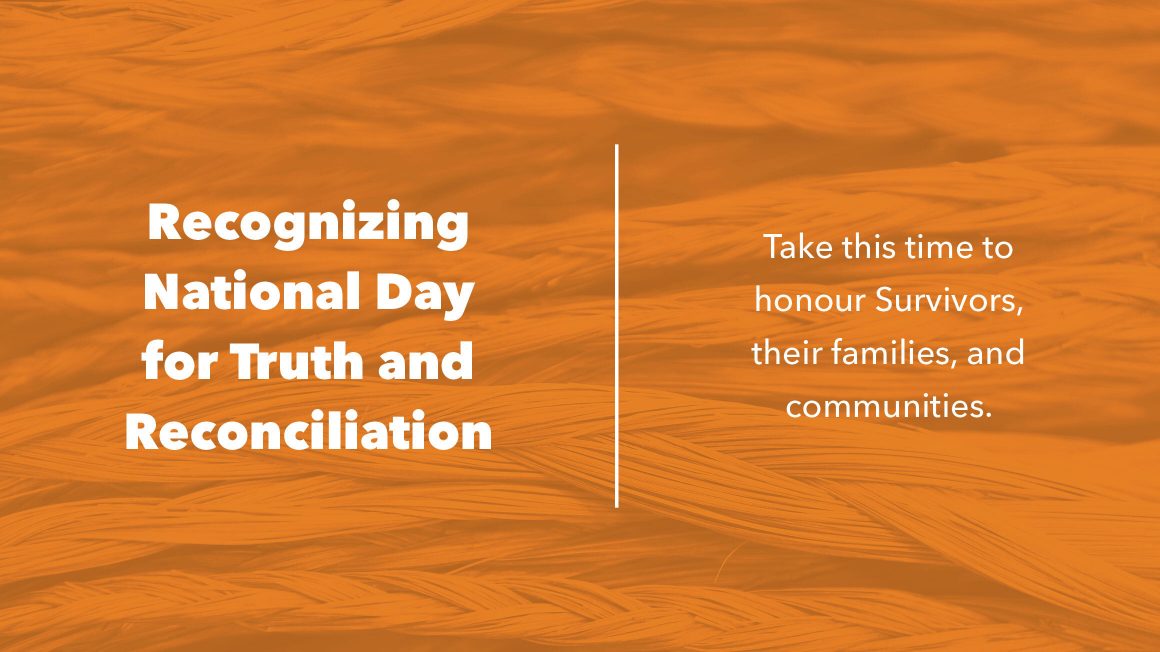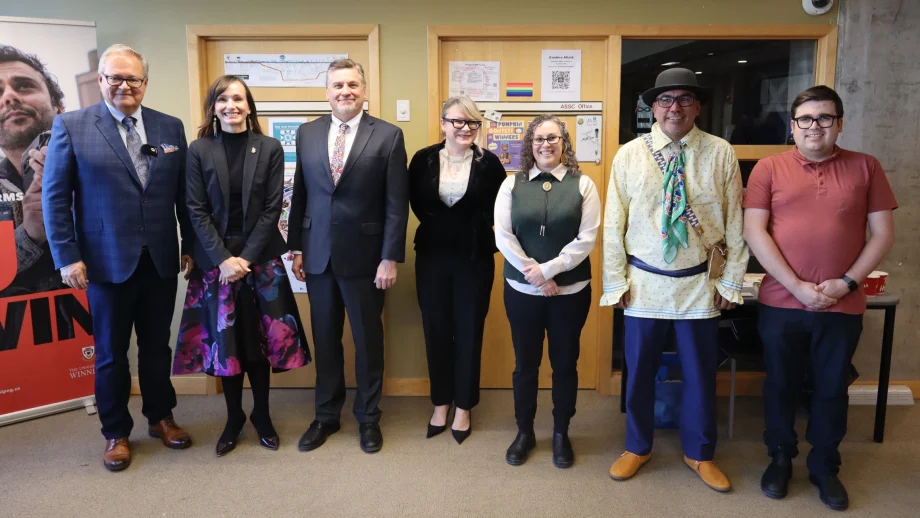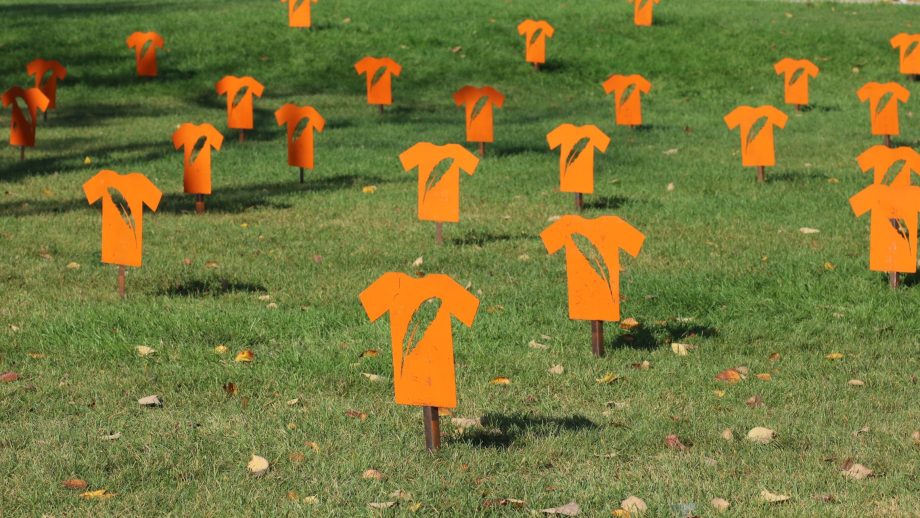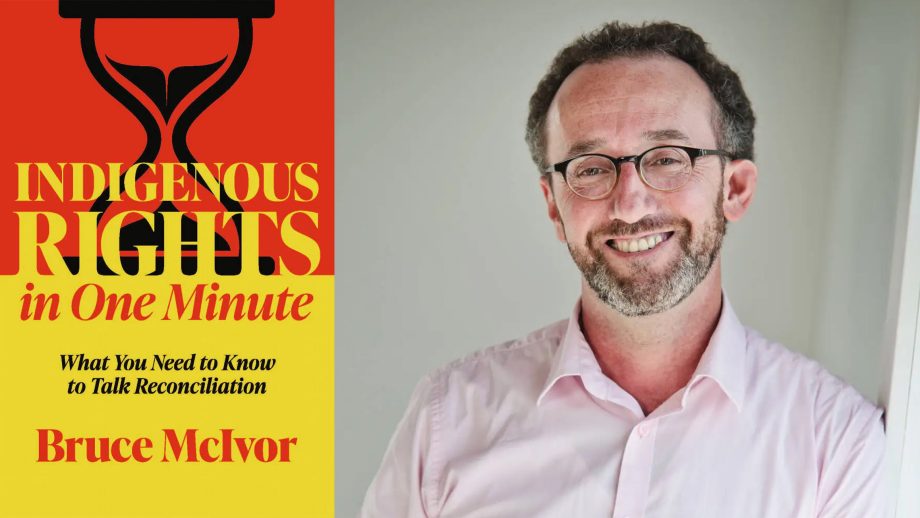The University of Winnipeg campus will be lit orange September 27 – 30 and closed on September 30 in recognition of National Day for Truth and Reconciliation, which is now a federal statutory holiday.
There will be virtual and in-person programming throughout the week dedicated to learning from Indigenous peoples and cultures along with honouring residential school Survivors. The UWSA will be hosting virtual workshops, limited in-person events, providing food and refreshments and giving away Every Child Matters orange shirts.
Students, staff, and faculty are encouraged to take this time to honour Survivors, their families, and communities. This can be done by taking part in commemorative community events and actively reading and listening to the history and legacy of residential schools.
“We honour the Residential School Survivors, families and communities for their resilience and persistent struggle for justice,” said Indigenous Academic Lead Dr. Lorena Fontaine. “As an intergenerational survivor, I stand in solidarity with you.”
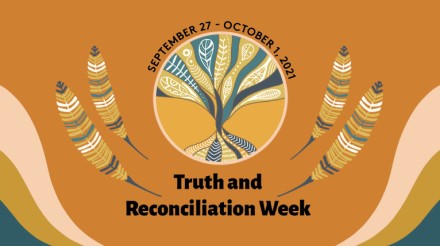
The University of Winnipeg Students’ Association (UWSA), Indigenous Students’ Association (ISA) and The University of Winnipeg present a week of programming from September 27 to October 1 surrounding Truth and Reconciliation and Every Child Matters Orange Shirt Day.
Ten ways you can listen, learn and respond
1. Come together as a community. The UWSA is leading a series of activities during Truth and Reconciliation Week. Visit the UWSA Truth and Reconciliation Week website for the full schedule of events.
2. Participate in Orange Shirt Day and attend virtual events hosted by the National Centre for Truth and Reconciliation.
3. Read Truth and Reconciliation Commission (TRC)’s 94 Calls to Action
4. Read the United Nations Declaration on the Rights of Indigenous People and the Upcoming Decade of Indigenous Languages (2022-2032) to focus on Indigenous language user’s human rights.
5. Read about the Aboriginal Justice Inquiry which was established in response to the deaths of JJ Harper and Helen Betty Osborne. On campus, the Helen Betty Osborne Building is named in remembrance of Osborne and many other Aboriginal woman whose lives have been marked by violence.
7. Learn Ojibway by listening to Aakoziiwigamig: An Ojibwe Radio Drama.
8. Grow your understanding by watching archived episodes of the Weweni Lecture Series, such as Indigenous Health and Wellbeing in Times of Pandemic.
9. Watch Birth of a Family, which tells the story of four siblings piecing together their shared history after being removed from their young Dene mother during the infamous 60’s scoop.
10. Visit the Kapabamayak Achaak Healing Forest in St. John’s Park, located in Winnipeg’s north end; a living memorial to Indigenous children and families lost to or affected by the residential school system.
You can find more learning resources, as well as information about The University of Winnipeg community’s commitment to supporting the recommendations of the TRC’s Calls to Action on UWinnipeg’s Supporting TRC’s Calls to Action website.
“All Canadians have inherited this legacy and must embrace the responsibility for reconciliation,” said Interim President and Vice-Chancellor, Dr. James Currie. “Recognizing September 30 as National Day for Truth and Reconciliation is a start. As we come to grips with the magnitude of Canada’s residential school history and our place in it, we must also consider the actions required for reconciliation.”
While we are proud of the work taking place to advance reconciliation, we know there is much more work to be done. If you are a member of the university community that has taken part in an initiative that contributes to Truth and Reconciliation, please email communications@uwinnipeg.ca

